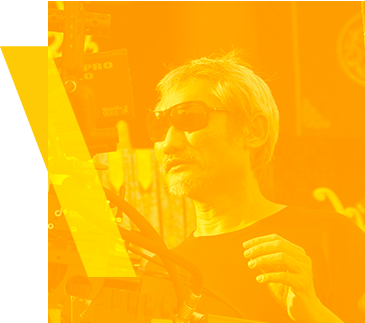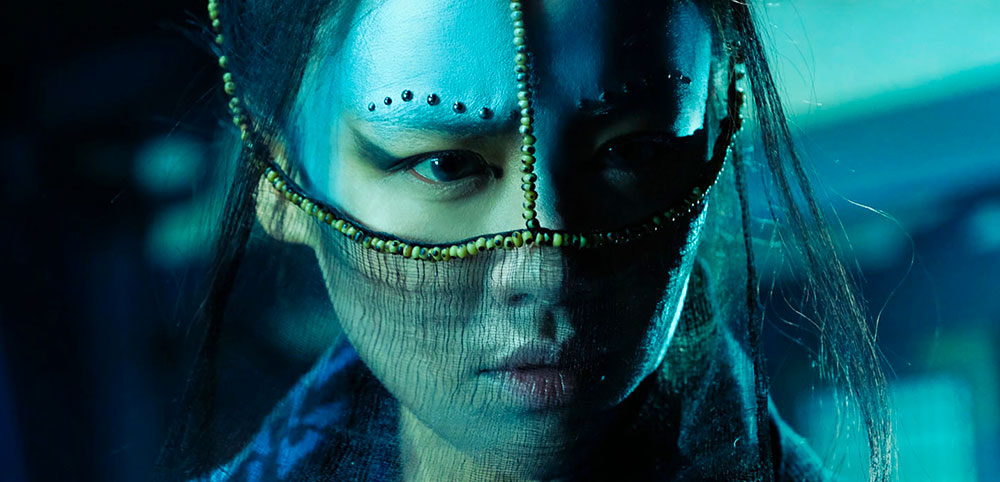Tsui Hark, the Chinese Spielberg
Detective Dee : The Foor heavenly kings
Film. The third installment of the Detective Dee saga is the opportunity to look at the carrer history of Tsui Hark. Prolific director and Hong Kong producer alternating blockbusters and more personal films. Presentation.
By Clément Levassort

It is nicknamed the Asian Spielberg … The Hong Kong director is as productive as the king of American entertainment and has made more than 40 films since the early 80’s. Also at home in popular entertainment, genre films only or in more personal style.
”he is 68 years old, a reference that holds the shock of comparison with Spielberg
Virtuosity of the staging, science of movement, visual language, the comparison is more than obvious !
Tsui Hark has reinvented the movie Saber (Zu, The Blade …), alternating between blockbuster and more ambitious films (Dangerous Encounters of the First Kind his first political thriller in 1980 or Time and Tide hailed by the Cahiers du Cinéma in 2001). He directed five movies from the Once Upon a Time in China franchise. And we also owe him the stunning melodrama The Lovers (1994) or the war movie The Taking of the Tiger Moutain (2015). By the way, in the 80s and 90s he produced A Chinese Ghost Story franchise as well as the three installment of The Better Tomorrow. The first two directed by John Woo and the third by himself after the two men scrambled. If Hark is less known in the West than Woo, is that his two films made for Hollywood, Double Team and Knock off with Jean-Claude Van Damme have not convinced that he preferred to return to Hong Kong.
Spielberg. The Detective Dee * trilogy can be understood as the Chinese counterpart of the Indiana Jones saga with which it shares some similarities. The charismatic hero is as intellectual as physical, mixing adventure and humor. And especially this playful approach to history that popular legends come loaded with magic. The third installment of Detective Dee sees again the investigator – played by Mark Chao since the previous episode – unraveling the dark intrigues of Empress Wu Zetian in China of the seventh century.
The Four heavenly kings is probably the most successful episode of the franchise. With this third 3D shoot, Tsui Hark achieves an impressive degree of formal mastery. Like Spielberg or Cameron, he is one of the few directors to calibrate his staging for 3D projection. Insisting on the effects of depth and perspective in the composition of his frames creating a sensation of immersion tenfold. He flies his camera in space and follows the action with a sense of movement and grace remarkable. Even dialogue scenes benefit from similar intentions and favor medium shots to embed characters into their surroundings rather than imprisoning them in close-ups. You’d think that 3D is the tool that was missing.
Let’s admit, however, that the special effects are not always at the level of those in Hollywood, but put things in context: Tsui Hark made his film for 20 million US dollars (one tenth of the budget of an average blockbuster) . A tour de force when we see the result on the screen, and the final Dantesque including. It even surpasses them in terms of creating a rich and coherent aesthetic universe. The story, sometimes hard, is crossed by colorful characters and immediately endearing. As the detective’s second-in-command, Shatuo Zhong (Kenny Lin), side kick as comic as touching. Intrigue movie and total show, Detective Dee once again demonstrates the mastery of a gifted director-artisan, devoted to popular cinema.
* inspiré des enquêtes policières du Juge Ti popularisées par Robert Van Gulik (10/18)


